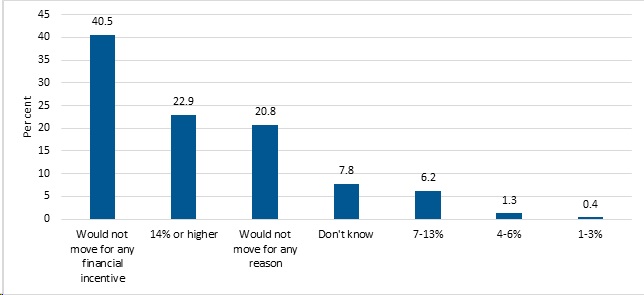Practices forced to offer £130k salaried jobs in bid to attract GPs

A £130,000-a-year salaried GP post is being offered at a struggling practice that was taken over by a hospital trust last year.
NHS Humber Foundation Trust told Pulse it is seeking a nine-sessions-per-week salaried GP, who will earn a ‘competitive salary’ of £120,000-130,000 plus QOF bonus and paid indemnity.
The trust, which took over the Field House Surgery in Bridlington, East Riding of Yorkshire, earlier this year, said it has been running the practice with locums only.
It was asked by NHS England to step in and take over the practice after the regional team had seen the contract handed back by two previous providers in two years, and following two unsuccessful rounds of procurement for a new provider.
As Pulse revealed last year, Bridlington was facing a potential ‘domino effect’ of closures as all the practices in the town had closed their lists due to unmanageable workloads.
Humber FT director of community, primary care, children’s and learning disability services Julia Harrison-Mizon said that since taking on the practice contract in January, the trust has ‘provided consistent GP cover through arrangements with long-term locums’.
She added: ‘We have, however, been working hard to recruit a permanent, full-time lead GP for the surgery.
‘With the workload in the Bridlington area being significant, this appointment would be hugely important and beneficial for our registered patient population. As such, we are looking for an outstanding individual to take on the role.’
The latest offical statistics for England, released last week, showed the average salaried GP took home pre-tax earnings of £55,800 in 2015/16. The salary on offer in Bridlington would also be nearly almost a third bigger than the average partner salary of £101,300.
Ms Harrison-Mizon said: ‘Until now, a suitable candidate has not come forward but we remain hopeful one will do so and have re-advertised the post with a competitive salary.’
Prospect Health, the recruitment firm advertising the role, told Pulse that it had also recently filled a salaried GP position in North Lincolnshire at £135,000 a year.
‘Lincolnshire as a whole has a shortage of GPs. It’s a real issue and it’s the same with the Bridlington, Scarborough, Filey area,’ said one recruiter who wanted to remain anonymous.
‘The difficulty is that so few GPs work in those areas, you’re trying to get someone to commute those distances or relocate. It’s basic supply and demand.’
Dr Zoe Norris, the BMA GP Committee’s lead on salaried and sessional GP issues, who works as a locum in Yorkshire, suggested the role would come with a significant workload.
She said: ‘They are struggling to get locums, they’re struggling to get everyone. They’ve got a good team of nurses but they need a GP. So it’s basically to be a single-handed partner but arguably it needs more than one GP to fix it.’
She said of the recruitment pressures in general that it ‘is getting to a sad stage when partners are so undervalued and the core contract is so poorly resourced that the only way to be adequately remunerated is in a salaried post in an area that’s been so deprived and has been struggling for so long’.
But she added: ‘It comes back to the basic premise: you have to invest in the partnership model. If we’re all going to take £130,000-nine-session salaried posts, smashing, but the NHS will collapse.’
Bridlington is not the only part of the country suffering workforce problems so dire that practices have collectively closed lists, with Folkestone, Kent, and North Ayrshire, Scotland, representing two other areas.
Meanwhile, a GPC survey revealed that half of practices across England would be willing to close lists to focus on existing patients.
Is money the answer to the GP recruitment crisis?
The BMA’s GP Committee’s Sessional GP Survey 2017 found less than one in 10 respondents (7.9%) would consider moving locations for less than a 10% earnings improvement.
Meanwhile, more than six in 10 respondents would not move for any financial incentive or other reason (61.3%). The BMA posed the question:
What level of realistic annual earnings improvement would cause you to consider moving locations (assuming all other conditions of the job were the same)?

Source: BMA









